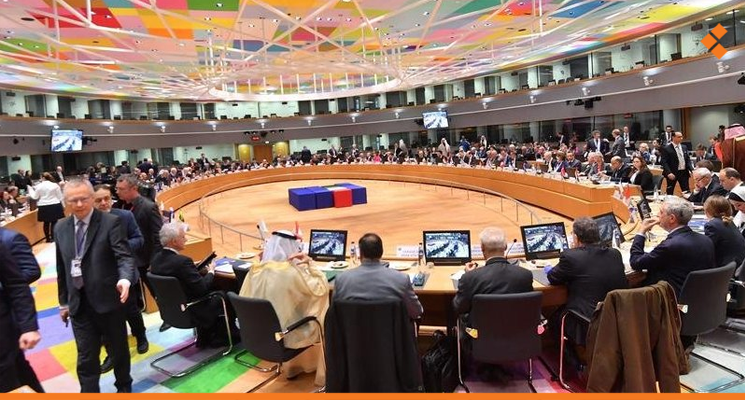The Brussels conference ended with countries pledging more than $6 billion to areas beyond Syrian state control and countries hosting Syrian refugees.
Donor countries confirmed that the funds allocated to support Syrians do not include the reconstruction issue, stressing that reconstruction funding in Syria will not be achieved until a political solution is reached in the country in accordance with UN Resolution 2254.
EU foreign policy chief, Josep Borrell, said that Turkey, Lebanon, Jordan, Iraq and Egypt will also benefit from humanitarian aid not allocated to Syria’s reconstruction.
The UN envoy to Syria, Geir Pedersen, said during the conference: “My message remains the same that I conveyed to the Security Council; Don’t lose sight of Syria. The strategic stalemate currently prevailing on the ground, and Syria’s absence from the headlines, should not be interpreted by anyone as saying the conflict needs less attention, or that a comprehensive political solution is no longer urgent,” according to Ashar al-Awsat newspaper.”
“We do not want the Syrian crisis to be forgotten, and we seek to maintain a strong international attention and focus on Syria, and to secure financial support to meet the needs of Syrians at home and in their host neighbouring countries,” Lebanese newspaper al-Akhbar quoted the EU Chargé d’Affairs in Syria, Dan Stoenescu.
The newspaper noted that the Brussels 6 conference recorded a weakness in political representation, unlike in previous years. The United Nations was absent from its presidency due to the boycott of Russia, while most foreign ministers of the countries formed by the former President did not attend.
Al-Akhbar pointed out that Kuwait, where the first conference was held in 2013, was attended by a representative of the Minister of Foreign Affairs without announcing any donations to Syria, while the aid of other Arab countries was very scarce. What Qatar provided did not exceed $50 million, while Japan donated $90 million, Germany was the most prominent donor with one billion and 400 million euros, followed by the United States with $800 million, the largest number recorded since the launch of the conference in Kuwait years ago.
In the previous version, donors pledged $4.4 billion in 2021 and $2 billion in 2022, while the United Nations was demanding $10 billion, reflecting the deficit in meeting needs, as well as declining interest in the Syrian issue.
The conference, which brought together representatives from 55 countries after Russia was excluded from the guest list, coincides with talk about the possibility of Russia using its veto to prevent the extension of the decision to open the northern Syrian crossings.
This article was translated and edited by The Syrian Observer. The Syrian Observer has not verified the content of this story. Responsibility for the information and views set out in this article lies entirely with the author.


